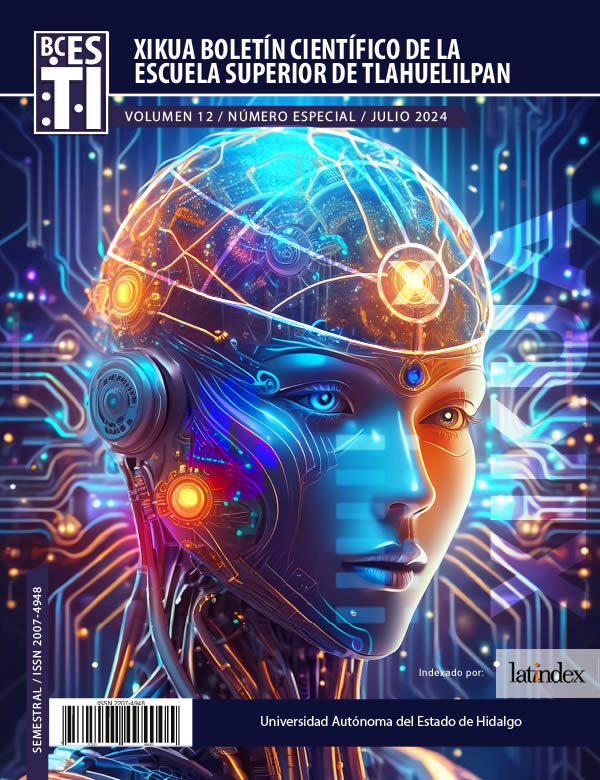Logistic Regression Machine Learning Technique for academic predictions
Abstract
In this article, we use logistic regression as a machine learning technique to predict the probability that a first-semester student at the Francisco José de Caldas District University will fail or pass the calculus subject, and with what percentage.
To do this, make use of the student database available in the data repository of the FJC district university, see [1].
Initially, we used logistic regression using the student's entry age and the grade obtained in previous semesters, to predict the percentage with which a new student would obtain a passing grade according to the standards of the district university, which is three point zero (3.0).
As a second term we use multiple logistic regression, with it we use more than two input variables and the grade obtained by the students in the previous semester. With this we predict the grade of the student with a passing percentage.
Firstly, using simple logistic regression, we predict the probability that a student with a given score on the state tests (ICFES) will fail a first semester course at the FJC District University of Bogotá.
For this we have used Python and the keras and tensorflow libraries. To evaluate the efficiency of our model, we have analyzed the data using: The mean square error, Mean Squere error´ (MSE), The root of the MSE, Root Mean Square Error (RMSE) and the coefficient of determination (R2).´ We have also evaluated our model using the square root of the mean square error, RMSE: Root Mean Square' Error, which measures how well a regression line fits the data points.
For the management of the database, we worked on .cvs files and they were manipulated using NumPy and Pandas libraries for this purpose supplied by Python.
Downloads
References
Regresión lineal y mínimos cuadrados (15 de Marzo de 2021). [Online Video]. Available url: https://www:youtube:com=watch?v = k964uNn3l0
Entendiendo la regresión logística consultado el 15 agosto de 2023 https://www.datasource.ai/es/data-science-articles/entendiendo-la-regresion-logistica regresión Lineal con Scikit Learn (14 de Marzo de 2021). [Online Video]. Available url = https: //aprendeia:com/regression-lineal-con-scikit-learn/
John Burkardt. Regression Linear Datasets (14 de Marzo de 2021). Available url = https://people:sc:fsu:edu/ jburkardt/datasets/regression/regression.html
Anurag Gupta. Using Python to visualize COVID-19 projections (14 de Marzo de 2021). Available url = https: //opensource:com/article/20/4/python-data-covid-19
Prototipo de una red neuronal artificial para la detección de falencias académicas en primer semestre Facultad Tecnológica (14 de Marzo de 2021). Available url = https://www.udistrital.edu.co/inicio
Minsky, Marvin and Papert, Seymour ,“An introduction to computational geometry”, Cambridge tiass., HIT, year=1969
Rosenblatt, Frank, “he perceptron: a probabilistic model for information storage and organization in the brain.” Psychological review, volume=65, number=6, pages=386, year=1958.
Rumelhart, David E and Hinton, Geoffrey E and Williams, Ronald J, Learning representations by back-propagating errors journal=nature, volume=323, number=6088, pages=533–536, year=1986, publisher=Nature Publishing Group
Wikipedia.org, Python, year = 2020, url = URL https://es.wikipedia.org/wiki/Python, note/”[Web; accedido el 26-04-2020]”
Jordi Torres, “Red neuronal en Keras, guia practica,”,year = septiembre 19, 2018,url = URL http://sitiobigdata.com/2018/09/19/red-neuronal-enkeras/, note = [Web; accedido el 26-04-2020]
“Keras.io,” year = 2020, url = URL https://keras.io/,note/ [Web accedido el 26-04-2020]
author = Wikipedia.org ,title = Tflearn, year = 2020, url = URL https://es.wikipedia.org/wiki/Tflearn,note = ”[Web; accedido el 26-04-2020]”
author = Wikipedia.org ,title = Keras, year = 2020, url = URL https://es.wikipedia.org/wiki/Keras, note = ”[Web; accedido el 26-04-2020]”
author = Guillermo Westreicher,title = economipedia, year = 2021, url = URL https://economipedia.com/definiciones/modelo-logit.html [Web; accedido el 26-04-2023]”
Congreso internacional de computación CICOM201. consultado el 15 agosto de 2023 https://comunidad.udistrital.edu.co/cicom2021/organizacion/
Copyright (c) 2024 Nelson Becerra Correa, Miguel Angel Leguizamón Páez

This work is licensed under a Creative Commons Attribution-NonCommercial-NoDerivatives 4.0 International License.








